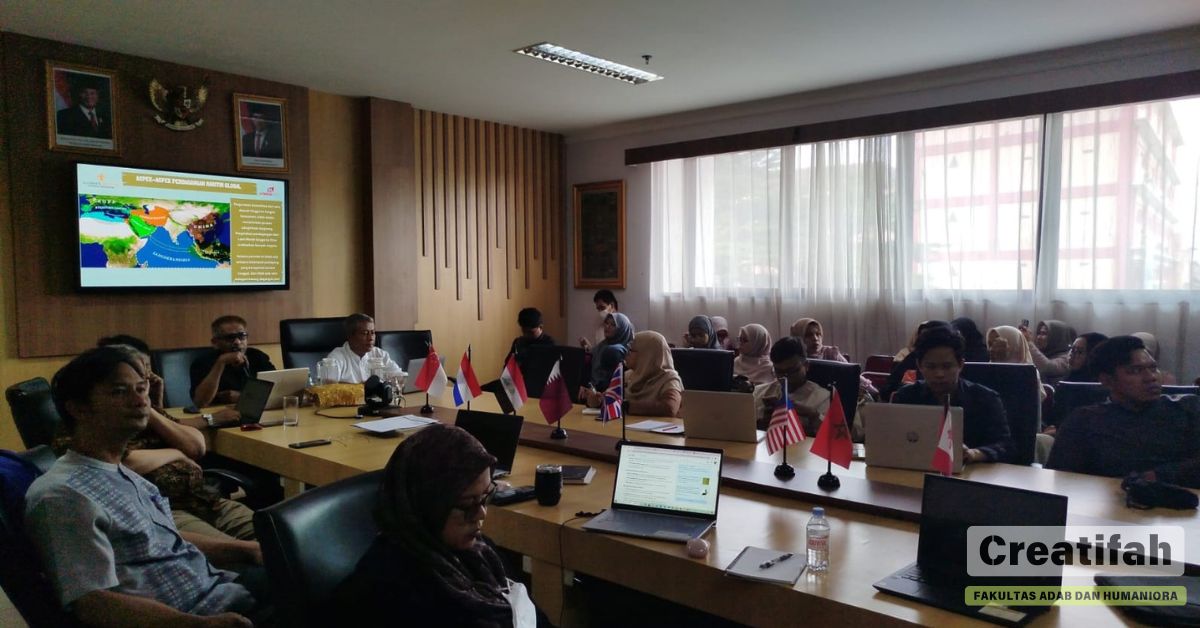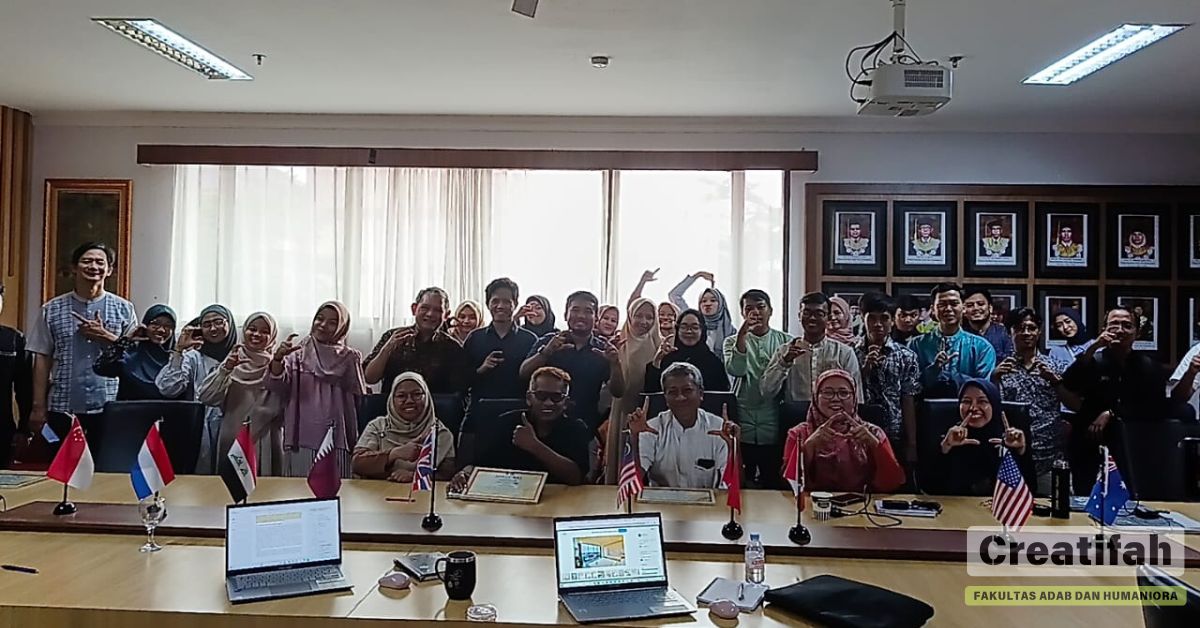Master FAH Gait BRIN and Expert in Islamic Archaeology Sultanate in Studium Generale
FAH Online News, Jakarta, Faculty of Adab and Humanities (FAH) UIN Syarif Hidayatullah Jakarta held a Generale Stadium entitled “Material Culture in the Global Trade Network of the Archipelago for the 7–10” Century. The event, which took place on the FAH campus, was officially opened by the Dean of FAH, Dr. Ade Abdul Hak, S.Ag., SS, M.Hum.
In his speech, Dr. Ade emphasized that the study of history and material culture is important because it is able to present a new perspective on how traces of Indonesian civilization were formed through international trade networks since the early days of Islam.
This stadium generale presents two prominent sources. Dr. Ery Soedewo, M. Hum. (National Research and Innovation Agency/BRIN) dissects the archaeological aspect through findings in the form of bowl fragments, urns, glass bottles and other artifacts spread across various regions of the archipelago. These findings, according to him, are not just inanimate objects, but bear witness to the long journey of cultural, religious and economic interaction in the maritime region of Southeast Asia.
Meanwhile, Mr. Abu Bakar Said (Sultanate Institute) highlighted the strategic role of Islam in shaping the global trade ecosystem. He revealed that since the time of the Prophet, trade has been an important part of the development of Islam. The opening of the Qulzum canal, which connected the Red Sea with Alexandria on the Mediterranean coast, facilitated the distribution of goods and accelerated the exchange of commodities and ideas.
Furthermore, Mr. Abu Bakar emphasized that the archipelago, including the region that is now Indonesia, has long been a global shipping destination. Its strategic geographical location makes the region an important point on the world trade route, where ships from the Middle East, India and China stop and exchange commodities. “The presence of Islam not only brings spiritual value, but also strengthens the role of the archipelago as the main node in global maritime networks,” he said.
This scientific discussion was guided by Dr. Faizal Arifin, M.Hum., lecturer in the History of Islamic Civilization, who emphasized the importance of linking archaeological findings with a broader understanding of Islamic culture and civilization.
For the participants, especially students of the Master of Arabic Language and Literature as well as the Master of Islamic History and Culture, this exposure provides a double benefit. From a literary perspective, the interconnectedness of global trade shows how text, language and culture flow along with the distribution channels of goods and ideas. From a historical and cultural perspective, students can understand that the material culture of artifacts, fragments and relics of everyday objects is the entry point for interpreting the identity, global network and socio-political dynamics of the archipelago in the 7th to 10th centuries.
This stadium generale is also a space for reflection, that research across archaeological disciplines, history, literature and civilizational studies has been able to open new horizons about the role of the archipelago in the global arena since the past.
Author: Nabila Rana Darmawan
Documentation:


